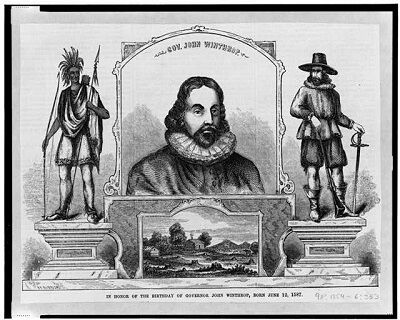The Massachusetts Bay Colony Government (more formally The Colony of Massachusetts Bay, 1628–1692) was an English settlement on the east coast of America in the 17th century around the Massachusetts Bay, the northernmost of the several colonies later reorganized as the Province of Massachusetts Bay. This government laid many of the cornerstones of what would be the official policy of the United States government toward American Indians.
Massachusetts Bay Colony Government
The colonists also had to devise some kind of policy toward the American Indians they encountered, and some were more successful and more just than others. Few would deny that the American Indians have been the victims of injustice and maltreatment over the course of American history. But those injustices have led many Americans to believe that the colonists had nothing but contempt for the American Indian, and sought merely to expel him or “steal” his land. But by its second decade Harvard College welcomed Indian students. Colonists could and did receive the death penalty for murdering Indians. Indian converts to Christianity living in the “praying towns” of New England enjoyed considerable autonomy.
Today the Puritans’ desire to win the natives to Christianity is often met with impatience and smirks. But consider the greatest of the Puritan missionaries, John Eliot, who lived from 1604 to 1690. What Eliot did in order to spread the Christian faith among the Indians almost defies belief. The Algonquins had no written language. So Eliot learned the spoken language of the Massachusetts Algonquins, developed a written version of their language for them, and then translated the Bible into that language. If Eliot and the Puritans had simply wanted to oppress the natives, they could have come up with an easier way.
It is not true that the Puritans possessed a sense of racial superiority over the Indians. They certainly did consider themselves culturally superior, though it is not clear what else they were supposed to think when they met peoples who did not use the wheel, possessed no written language, and were, in effect, living in the Stone Age. But race did not enter into the question. Roger Williams, who founded Providence, Rhode Island, believed that the Indians were born white, a view that
was generally shared by the Puritans; the effects of stains and the sun were said to have darkened their skins.
Scholars in recent decades have softened their earlier judgments about the harshness of Puritan treatment of the natives. But the research of specialists typically takes a long time to make it to the texts written by generalists. For instance, some overviews of European history still portray the Middle Ages as backward and barbaric, when medieval scholars know full well the contributions of the Middle Ages to European civilization, particularly in the origins of modern science, the development of the university system, and the fruitfulness of medieval intellectual life. The same is true of scholarship on the Puritans and the Indians: the generalists continue to speak badly of the Puritans, while specialists often conclude that the Puritans’ record is considerably better than people have been led to believe. This is true also in studies of the PuritanIndian wars. “In generalists’ eyes,” explains historian Alden Vaughan, “the Puritans provoked every clash and intended—indeed sometimes accomplished—genocide. Specialists, whether of military history or of related topics, viewed the causes of the English-Indian wars as less simple, less unilateral, and the outcomes, though appallingly lethal, never genocidal.”
This article is part of our larger selection of posts about Colonial America. To learn more, click here for our comprehensive guide to Colonial America.
This article is also part of our extensive collection of articles on the Antebellum Period. Click here to see our comprehensive article on the Antebellum Period.
This article is also part of our larger selection of posts about American History. To learn more, click here for our comprehensive guide to American History.
Additional Resources About Revolution and Colonies
Cite This Article
"Massachusetts Bay Colony Government" History on the Net© 2000-2024, Salem Media.
July 24, 2024 <https://www.historyonthenet.com/massachusetts-bay-colony-government>
More Citation Information.

